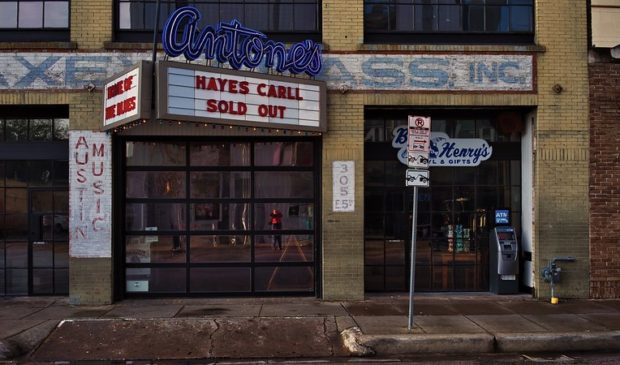City to expand federal aid for musicians, venues impacted by Covid-19
Monday, August 23, 2021 by
Chad Swiatecki The city will provide more assistance for music venues and anyone involved in the music industry, using $4 million in federal money designated for Covid-19 relief.
On Friday the Music Commission approved a recommendation for guidelines for city staff to move forward with another round of direct cash payments to musicians in Austin as well as those living in the five-county metro area. The total $2.3 million for that program will be used to provide $2,000 or $1,000 grants to eligible musicians, whose applications will be scored and weighted to prioritize equity and help those from traditionally marginalized communities.
The commission also supported adding $1.5 million to an existing program to provide grants and business planning assistance to music venues that had their business severely reduced during forced closures at the onset of the pandemic.
The $4 million in funds from the American Rescue Plan is a staff-recommended reduction from the $10 million Council originally directed staff to allocate from the city’s total amount of federal assistance.
The decision to expand the assistance for musicians and music industry professionals to those living outside of Austin was arrived at because of the city’s growing affordability crisis, which is forcing longtime artists and others to move to Bastrop, Hayes, Caldwell and other counties even though they may still perform, record and conduct much of their business in Austin.
The residency requirement was one of the more criticized components of the city’s previous assistance programs for artists and musicians.
Commissioner Oren Rosenthal said the city should make note of how many grants are given to musicians living outside of the city, and provide that data to leaders in other counties as a way to encourage them to support the creatives moving into their communities.
“I realize there has been displacement, but we are subsidizing people who are not in the city of Austin with Austin-designated money,” he said. “There may not be a program there, but there is nothing stopping the Music Commission from saying that Austin and Travis County is giving this and we expect a proportionate amount to be coming from (Williamson) County, Hayes and all these others, to support these artists.
“Calling them out for not supporting their artists as Austin is doing could be a good poke in the ribs and it could get those musicians organized in their local jurisdictions to start getting some support from their local governments.”
Commissioner Graham Reynolds asked staff to look for a way to weight the scoring of applications so that new entrants, including those who’d been precluded based on the residency requirements, would have a greater chance of receiving a higher award amount. He added that disproportionate numbers of Black, indigenous and Latino musicians and music industry professionals “are the ones that have been displaced.”
“A lot of this focus is a way to address those equity issues, and Austin has resources other places don’t because the music industry is here and because there is funding here to help these folks in a way that those other counties don’t necessarily have the resources or the will to do,” Reynolds said.
The $2.3 million award amount accounts for an expected 5 percent administrative fee paid to an outside vendor to handle and score applications based on city-provided criteria, with grants expected to be delivered this fall or by the end of the year.
Commission members strongly supported looking to the MusiCares nonprofit, which is operated by the National Academy of Recording Arts and Sciences to provide services and assistance to musicians across the country.
Photo made available through a Creative Commons license.
The Austin Monitor’s work is made possible by donations from the community. Though our reporting covers donors from time to time, we are careful to keep business and editorial efforts separate while maintaining transparency. A complete list of donors is available here, and our code of ethics is explained here.
You're a community leader
And we’re honored you look to us for serious, in-depth news. You know a strong community needs local and dedicated watchdog reporting. We’re here for you and that won’t change. Now will you take the powerful next step and support our nonprofit news organization?






